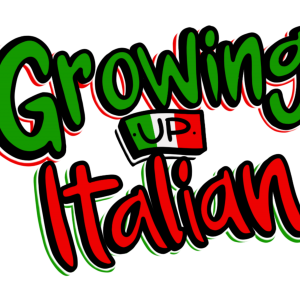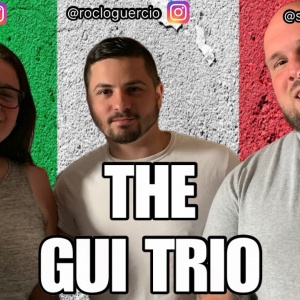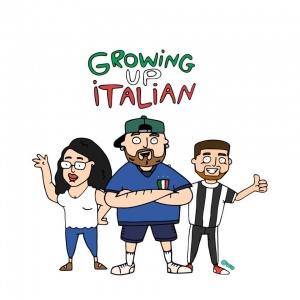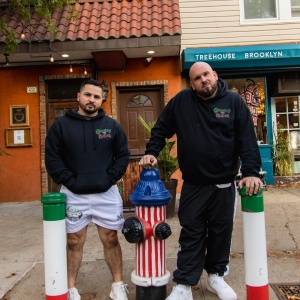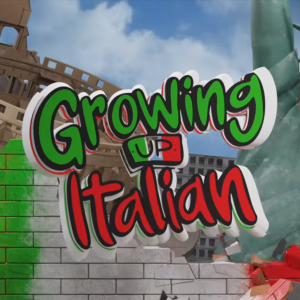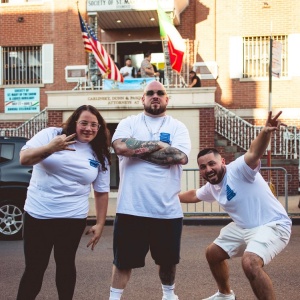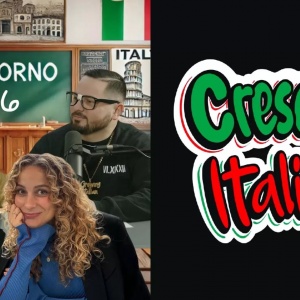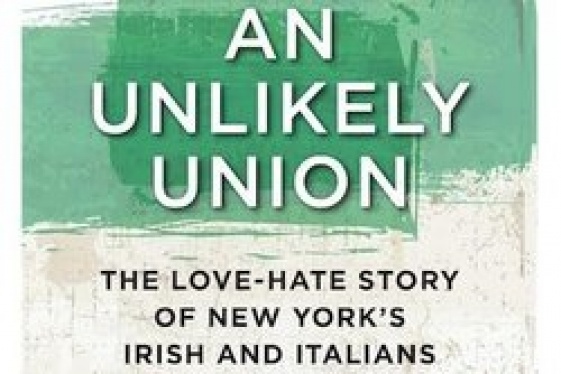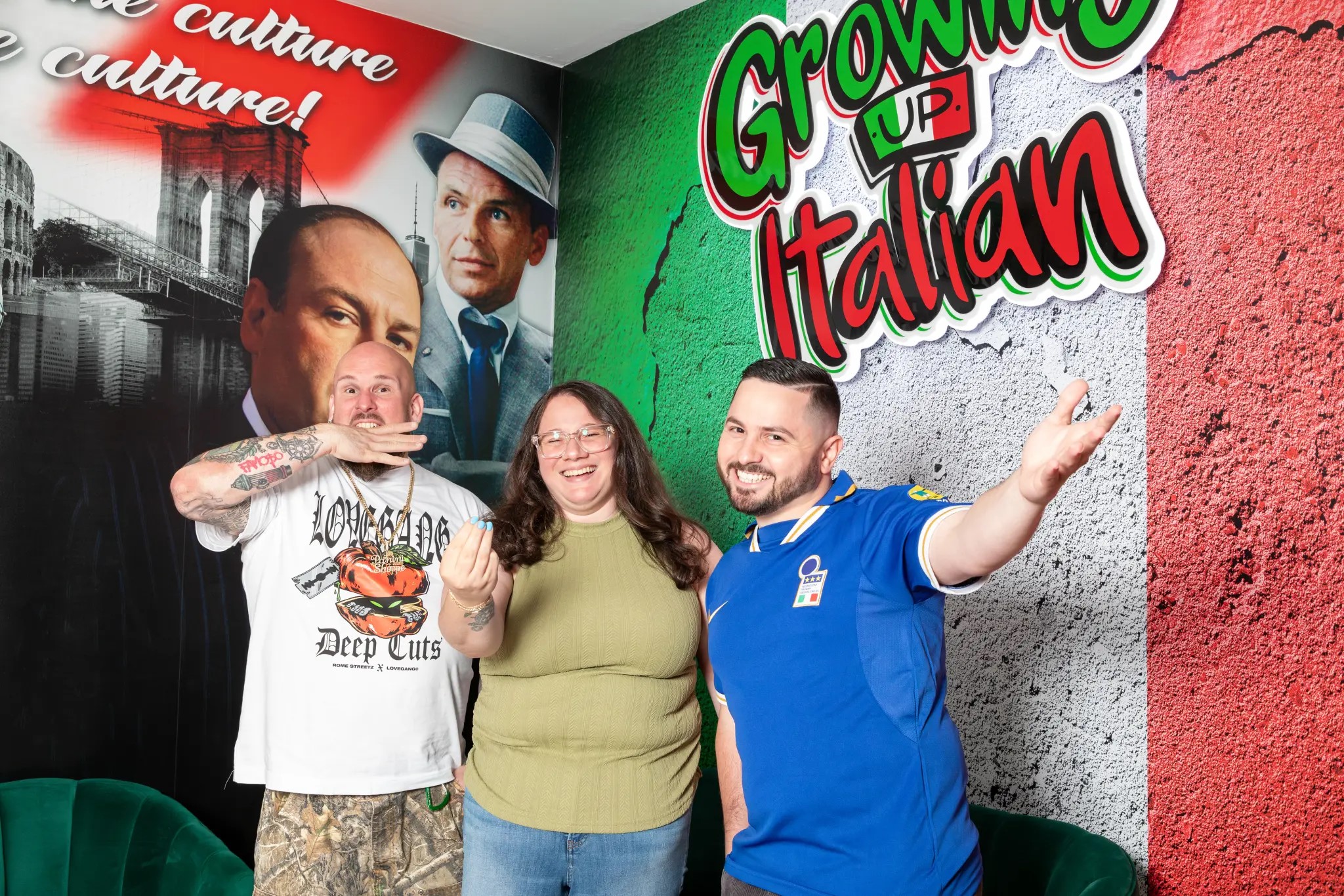
Sabino and Michela Curcio and Rocco Loguercio (Growing Up Italian)
Growing Up Italian: una voce contemporanea per una comunità italoamericana senza tempo

In an attempt to explain Italian Americans to Italians like me who live in Italy, an indispensable tool has been as successful as it is deserved is “Growing Up Italian”. I met them at the Italian American Future Leaders conferences, and every time they publish a short video in which I have the pleasure of expressing my opinion, I receive many messages - both from Italy and the United States - telling me that they have seen me.
Growing Up Italian has become a gathering place for Italian Americans to talk about identity, immigration, language, and assimilation. They offer a vibrant, sometimes chaotic, but always loving depiction of what it means to be rooted in an old-world culture while living in a modern American city. For first- and second-generation Italians navigating life between two languages and two sets of customs, the content often feels like home. I love Growing Up Italian, and I am happy to welcome Sabino, Rocco and Michela on We the Italians.
Let me start by asking you a little about yourselves. You’re cousins who grew up in Brooklyn, right? What part of Italy are your roots from?
We’re family, yes, in Brooklyn, NY. Our family is from Salerno, Campania. Rocco's mom and dad's from Sassano, and Sabino and Michela’s dad is from Sanza and their mother is from Sassano.
Sabino and Rocco are cousins, and Michela is Sabino’s sister. Rocco and Michela started the Instagram and the Facebook page, and they just posted funny pictures and funny videos for two years. Then they had the idea to do the podcast, and they invited Sabino. And we started doing the podcast all together, recorded in their family’s panini shop, converting a space above the deli into a studio.
Italian Americans from across the country, and even Italians from abroad, recognize themselves in the stories, the accents, the food references, and the exaggerated family dynamics. People felt seen, they hadn’t realized how universal some of these experiences were.
What’s the biggest difference between you, something where you’re complete opposites?
We all provide something different for the show. Sabino is the networker. Rocco is the brand strategy, and Michela drives the ship: she takes care of all the merchandising, she does all the bills and the administrative necessities.
Can you help me get the exact numbers behind your huge success? And more importantly: what’s your secret? And who are your guests?
Since the beginning, every week we grew a little more. During COVID we really grew a lot. We went from 60,000 to 250,000 followers in a week, and then we just kept growing and growing. It wasn't just one thing that helped us. It helped a lot being consistent, because we've been doing this for eight years now.
We are not media moguls or seasoned entertainers, we are products of a close-knit family raised in the traditions of southern Italy, transplanted to Brooklyn. We share childhoods, filled with pasta-making nonnas, overprotective parents, and a deep respect for family values.
Guests on the podcast include musicians, actors, athletes, chefs, and even grandmothers with stories to tell and wisdom to share.
At this point we have about 5,000,000 followers total across every platform.
We don't really have a secret. We try to keep things authentic and stay true and consistent, and people recognize that. We never skip, that is important: we have never missed a week for a podcast. So even if sometimes we don't have the best guest, we still do a podcast. A lot of people that want to grow on social media, after a certain amount of time, they give up. Consistency is the key, together with entertainment and authenticity.
Also, unlike many influencers who pivot to brand deals and polished aesthetics, Growing Up Italian remains grounded in family. Our parents, siblings, and even older relatives frequently appear in our videos, correcting someone’s pronunciation or chiming in with unsolicited advice. These moments add truth to the content, and our viewers can’t get enough.
We think that our success also speaks to a generational shift. For years, Italian Americans were often portrayed in narrow or stereotypical ways on screen. Now we are reclaiming the narrative. We show that Italian identity is complex and evolving: it’s pride in one’s ancestry without being stuck in the past, and it’s respect for tradition while carving out something new.
Younger audiences tell us that we serve as a digital bridge which remind them of where they come from while giving them the tools to reinterpret those stories in their own lives. It’s not just about laughing at Nonna’s strong opinions: it’s about learning from them. It’s not just about mocking superstitions: it’s about recognizing their cultural significance. The power of social media educates while it entertains.
You’re amazing at communicating through social media and the podcast. Why do you think Italian American content like yours - which on the surface seems pretty traditional and old-school - works so well with modern algorithms and audio/video platforms?
We think that a lot of people like our podcast because it's nostalgic, and it provides a very important value to people that are trying to keep traditions in a world where everyday more and more they seem to be lost. We try our best to keep the traditions.
We adapt contents to the platform we use: short videos for TikTok, memes for Instagram, long-form interviews for YouTube and podcast apps.
One of the key contents of our podcast is food. In our Italian culture, food is tradition, memory, and communication. Growing Up Italian taps into that power through recipe videos, taste tests, and heated debates about the “right way” to make sauce (because make no mistake: to us it’s sauce, not gravy!). These videos spark comment wars, invite shared stories, and encourage younger generations to get into the kitchen with their elders.
Also, we hosted live events, partnered with local businesses, and helped spotlight up-and-coming creators within the community.
And, yes, it is very important that everybody subscribes to all the platforms we are in: Spotify, Apple Podcast, YouTube, TikTok, Facebook, and Instagram. Because there are so many different channels and we need to have support on every one of them.
I work in Italy promoting the Italian American community, and I’ve noticed that sometimes Italians living in the Bel Paese have a hard time understanding or appreciating certain things that are typical of Italian Americans. Has that happened to you too?
Yes, it happens sometimes, but it comes with success, and I appreciate it. Italians sometimes give us a hard time, but we also have Italians who love us. We used to get a lot of “oh, you're not really Italian”, but now people respect us more, and that is really nice and it feels good.
We have seen that our influence has begun to cross over into Italy itself, where many viewers are fascinated by how Italian culture has been interpreted and reinvented by those born abroad. It’s a two-way conversation: Italian Americans reconnecting with their roots, and Italians gaining new perspective on their global diaspora.
What is “Cresciuto Italiano”?
It's the Italian-language version of our podcast, where Rocco and Sabino try to improve their Italian through some seriously hilarious “lessons.” They’re usually joined by Eva Calvani as their Italian “teacher,” along with two regular guests: Big Joe Gambino and Mario Bosco - both Italian American creators and actors.
You may be interested
-
An Unlikely Union: The love-hate story of Ne...
Award-winning author and Brooklynite Paul Moses is back with a historic yet dazzling sto...
-
Cathedral of St. John the Divine, Oratorio S...
For the first time ever, The Cathedral of St. John the Divine, in collaboration with the O...
-
Davide Gambino è il miglior "Young Italian F...
Si intitola Pietra Pesante, ed è il miglior giovane documentario italiano, a detta della N...
-
Garibaldi-Meucci Museum to Celebrate Ezio Pi...
On Sunday, November 17 at 2 p.m., Nick Dowen will present an hour-long program on the life...
-
Italian Master Drawings From The Morgan (Onl...
The Morgan Library & Museum's collection of Italian old master drawings is one of the...
-
Italian Women Trailblazers - Young Professio...
April 16, thursday - 6,30 EDTAzure - New York, NY - 333 E 91st St, New York 10128Tick...
-
La Befana makes her way to the Garibaldi-Meu...
Saturday, January 10at 2:00pm - 4:00pm, Garibaldi-Meucci Museum 420 Tompkins Ave, Staten I...
-
Lecture and Concert that bring Italy to New...
Saturday, february 28 - 7 pm ESTChrist & Saint Stephen's Church - 120 W 69th St,...





